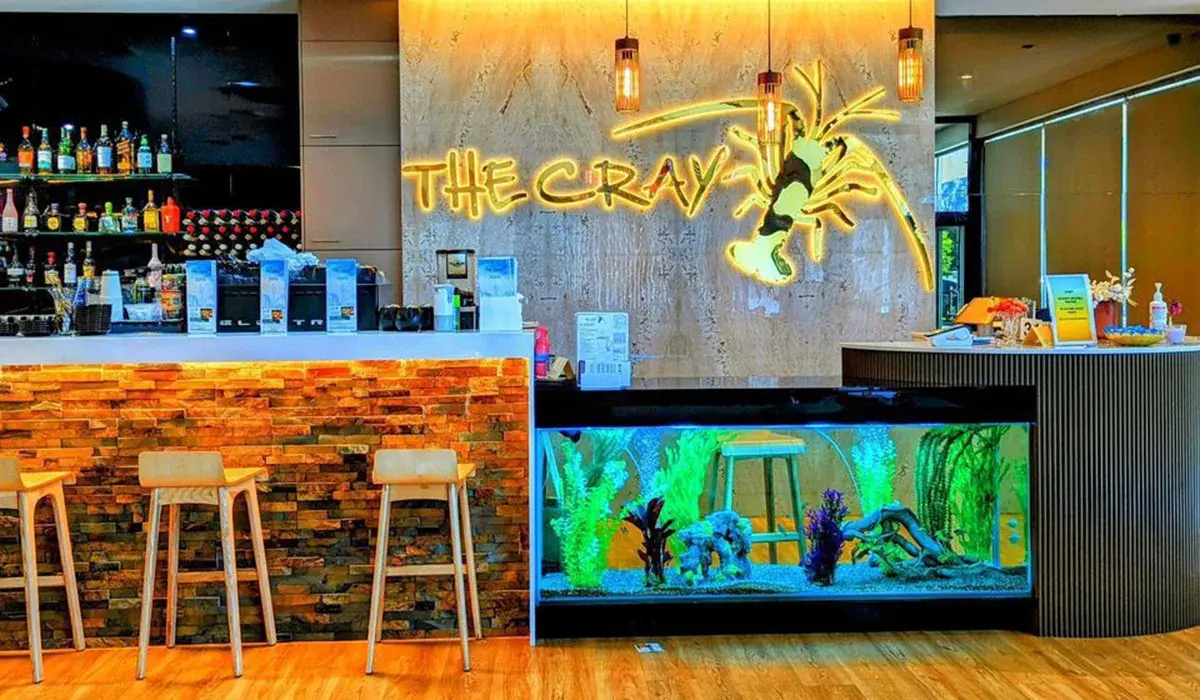

Posted on 19th January 2023
What are the key components of a POS system?
This back-to-basics article looks at the key components that make up a POS system, and what you need to consider to get the right system for your business.

Check out POWEREPOS, our cloud-hybrid POS software, in action.
The key components of a POS system
Modern POS systems consist of hardware and software components. Hardware assists in entering the data, printing dockets and receipts and connecting the system throughout your store or venue. The software registers, processes, and stores transaction details. There are three types of POS software, server-based, cloud-based, and cloud-hybrid.
Hardware
All modern POS systems have a POS touchscreen terminal, tablet, or mobile device to process transactions (for front-of-house in hospitality venues) and a back office to configure and manage the system.
The back office is usually accessed through a separate device such as a laptop or desktop PC but for cloud-based and cloud-hybrid POS software, some back-office interfaces can be accessed through a browser making them available through your smartphone as well.
Depending on your store or venue set-up, other hardware that might be required includes docket and receipt printers, cables to link everything up, cash drawers to handle cash, EFTPOS machines to process credit cards, kitchen video displays for a paperless kitchen, RFID cards or bracelets for fast and secure login and loads more.
Staff processing transactions use the frontend interface and the backend is usually accessed in a separate browser or application window on the same device, or a separate computer.
Software
There are many different brands of POS software available. They differ in the type of industry and size of business they are built for (retail Vs Hospitality), the number of features and functionality they provide, and the way data is stored.
For smaller businesses with fewer users and requirements, a lite system might be suitable as the process for transactions and reporting might be quite simple.
For a larger business with many users over a few sites, a more advanced system with permissions-based login, and additional modules such as stock and inventory and staff management would be more suitable.
Obviously, as the software requirements increase, generally so do the price and data storage requirements.
Many POS software platforms provide modules to add to the system. Sometimes they are included in the price of the system which can be great if you require that particular module, or not so great if you have paid for it but you don't need it, and sometimes there is an additional charge for each module. Software modules can include stock and inventory, staff management, reporting, loyalty, membership, and loads more.
Software Integrations
Another way to get these features is to add third-party integrations to your POS software setup. We call this a tech stack as we 'stack' 3rd-party software systems and get them to pass information back and forth, saving time and improving accuracy.
Many brands of POS software are integrated with other popular software that provides the best-in-class functionality for their field. Some examples of this are accounting integrations through MYOB and XERO, reservations through Now Book It and ResDiary, and online in-venue QR code ordering through me&u. By doing it this way you get the very best of both systems.
Server-based on-premise POS Software
Software is installed ‘locally’ on your own servers such as a computer permanently based at your store or venue.
Things to note about this type of POS software include:
- This type of POS software is mostly sold as a once-off license purchase which you then own forever.
- For outright license purchases, support and upgrades are an additional expense.
- As all data and software are stored on a physical server, this could be stolen or damaged and all data lost.
- As the server hardware gets older, it will also need to be updated.
- The front and back-office of these systems must be connected through physical cables.
- This type of POS software is great for operators who want to pay once for their software and not pay ongoing fees.
- Increased financial risk and therefore barrier to change as it generally involves a large financial outlay at the start but over time it's written off, and when kept for many years the cost becomes negligible.
Cloud-based POS Software
Cloud-based systems rely solely on an internet or data connection. They process transactions on a POS terminal or tablet and send all data up to the cloud for storage.
Things to note about this type of POS software include:
- If you are located in an area with intermittent internet, a totally cloud-based system might not be the best option. If the internet goes down you will not be able to process transactions.
- If the software is hosted online, i.e. data are stored on your POS provider's internet servers, you might be able to access it from any computer browser.
- Also called software-as-a-service (SaaS), this system is automatically maintained and updated by your POS provider.
- Most SaaS POS software is charged as a monthly subscription fee which often includes upgrades and support.
- Some POS systems also change per transaction and while this may look cheap from the outset, as the number of transactions increases, so do your POS fees.
Cloud-hybrid POS Software
As the title indicates, this type of POS software combines the functionality of cloud-based and server-based systems. The main feature of a cloud-based hybrid POS is that it will keep operating if your internet or data connection goes down. This type of POS will store transaction data in the software until your internet connection is reestablished, then send the data to the cloud.
Things to note about a cloud-hybrid POS system include:
- The main feature of a cloud-hybrid POS system is its reliability as the software works well in locations where the internet might be intermittent or not available.
- Storing data in the cloud makes it available for mobile reporting through an app or browser on your smartphone, tablet, laptop, or desktop.
- As it's not server based, you can usually access and update your POS from anywhere.
- Maintenance, updates, and support fees can be included in the monthly subscription fee.
- It usually requires a much lower financial outlay at the start but fees continue throughout the use of the service.
Which POS software is right for your business?
On-site POS software was the norm for quite a while but cloud-based or hybrid systems relying on both the internet and local hosting are now just as common. On-site POS software can be more expensive to set up, often requiring professional assistance and maintenance. Cloud-based systems tend to be more affordable at the beginning (usually paid as a fixed monthly subscription fee or as a percentage of each transaction processed) and often have more options to integrate with other software programs.
Finally, POS software can differ hugely in terms of features, functionality, and user experience. Each business sector has its own needs that specialised POS systems can accommodate. For instance, restaurants may need table management, reservations, and QR codes for at-table ordering.
The best hospitality POS systems are built to manage many styles of service, and provide security around transactions, ease of use, and live reporting. To work out the best POS for your business, first work out your requirements, how you want to pay, and the functionality you need, then get in touch with a few suitable providers and get a demo of their system. You'll quickly get to know the most suitable system for your business.
If you're seeking a high-quality, Australian-made and supported Point of Sale solution for your hospitality or retail business, look no further than Triniteq. Our innovative technologies are designed to simplify your operations, enhance your customer experience, and make you more money. Discover our range of products and services today.
If you're new to PowerEPOS, our new cloud-hybrid POS system, watch our Demo video, or Book a demo for more info.
Related articles
When Tejas Patel and his team at The Cray set out to open nine new restaurant locations ...
Pholklore is a vibrant, modern Vietnamese eatery known for blending traditional flavours ...
For a limited time, new Xero customers can access 90% off their Xero fees for 6 months, a ...



